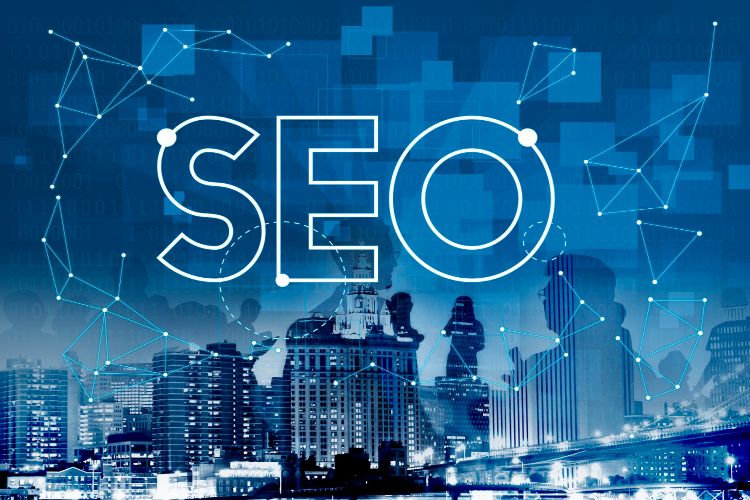

Search Engine Optimization (SEO) has long been the cornerstone of digital marketing, driving traffic, visibility, and sales through the strategic use of keywords, backlinks, and quality content.
However, as artificial intelligence (AI) evolves, the rise of conversational agents like ChatGPT poses intriguing questions about the future of search engines—and by extension, SEO itself.
Imagine a world where ChatGPT or similar AI systems replace traditional search engines. What would happen to SEO strategies that have been honed for over two decades?
How would businesses adapt to a new paradigm where users no longer rely on search engine results pages (SERPs) but on direct, conversational interactions with AI?
This blog explores these questions and envisions the future of SEO in a post-search engine world.
The Current State of SEO: A Brief Overview
SEO, as it stands today, is a complex ecosystem of practices designed to improve a website’s ranking on search engines like Google, Bing, and Yahoo. The core components of SEO include:
- Keyword Research: Identifying the terms and phrases that potential customers are searching for.
- On-Page Optimization: Ensuring that the website’s content, meta tags, headers, and URLs are optimized for search engines.
- Off-Page Optimization: Building backlinks and establishing authority through content marketing and social media engagement.
- Technical SEO: Improving site speed, and mobile responsiveness, and ensuring proper indexing by search engines.
- User Experience (UX): Designing websites that provide a seamless and intuitive experience, which is increasingly important for SEO rankings.
These practices are built around one primary goal: to rank as high as possible on SERPs, increasing visibility and driving organic traffic. However, the introduction of AI-driven conversational models like ChatGPT could disrupt this dynamic.
The Rise of ChatGPT and AI: A Paradigm Shift
ChatGPT and similar AI models represent a significant leap in technology. Unlike traditional search engines, which rely on algorithms to index and rank websites, ChatGPT interacts with users conversationally, providing answers, recommendations, and insights directly, without the need to navigate through multiple pages of search results.
This shift raises several key questions:
- Will users prefer the directness of AI interactions over traditional search?
- How will businesses optimize their digital presence if SERPs become obsolete?
- What role will content play in a world where AI provides instant answers?
The Potential Decline of Traditional Search Engines
If AI systems like ChatGPT were to replace traditional search engines, the decline of SERPs could be inevitable. Here’s how this scenario could unfold:
- User Behavior Shifts: As users become more accustomed to the convenience of AI interactions, they may gradually abandon search engines in favor of AI-powered assistants. This shift could be driven by the ability of AI to provide personalized, concise, and accurate responses.
- Redefinition of Information Retrieval: AI-driven models excel at understanding context and nuance, making them superior in some ways to keyword-based search engines. Users could rely on AI for everything from finding local businesses to researching complex topics, bypassing traditional search engines entirely.
- The Death of SERPs: Without users, search engines would lose their primary function, leading to the decline of SERPs. Businesses would no longer compete for the top spot on Google but rather for visibility within AI-driven ecosystems.
The Evolution of SEO: From Search Engines to AI Optimization
As search engines decline, SEO as we know it will undergo a radical transformation. The new focus would be on optimizing for AI interactions rather than SERPs. Here are some possible developments:
1. Content Adaptation for AI Consumption
In a world dominated by AI, content would need to be structured in a way that AI models can easily parse, understand, and deliver to users. This could involve:
- Structured Data and Schema Markup: Ensuring that content is well-structured with rich snippets and schema markup to make it easily digestible by AI.
- Natural Language Processing (NLP) Optimization: Tailoring content to match the conversational and context-aware nature of AI, making it more likely to be used in AI-generated responses.
- Content Personalization: Creating highly targeted content that caters to specific user intents and needs, leveraging AI’s ability to understand and predict user behavior.
2. AI-Driven Content Creation
As AI becomes more central to information retrieval, the process of content creation itself could be revolutionized. Businesses might:
- Leverage AI for Content Generation: Using AI tools to create content that is optimized for AI consumption, ensuring it aligns with the conversational style and context-aware nature of AI models like ChatGPT.
- Continuous Content Evolution: AI could analyze user interactions in real time, providing insights that allow businesses to update and refine their content strategies continuously.
3. Redefining Authority and Trust
In the current SEO landscape, authority is often built through backlinks and domain authority. However, in an AI-driven world:
- Trust Signals for AI: Businesses would need to establish trust signals that are recognized by AI, such as verified data sources, expert authorship, and transparent practices.
- AI as a Gatekeeper: AI could act as a gatekeeper, curating and prioritizing content based on its understanding of authority and trustworthiness, rather than relying on traditional SEO metrics.
4. The Role of Voice Search and Conversational AI
Voice search, which is already on the rise, would become even more prominent in an AI-dominated future. SEO strategies would need to adapt to this trend by:
- Optimizing for Voice Search: Creating content that is optimized for voice queries, which are typically more conversational and question-based.
- Conversational Interfaces: Developing content and interfaces that work seamlessly with AI-powered conversational agents, ensuring that users can easily interact with and retrieve information from businesses.
The Future of Digital Marketing in an AI-Dominated World
As SEO evolves, so too will the broader field of digital marketing. Here are some potential trends:
1. The Integration of AI and Marketing Strategies
AI will not just disrupt SEO; it will become an integral part of all marketing strategies. Businesses might use AI for:
- Predictive Analytics: Leveraging AI to predict customer behavior, optimize campaigns, and improve ROI.
- Personalized Marketing: Using AI to create highly personalized marketing messages that resonate with individual users based on their preferences and behaviors.
- Automated Customer Engagement: Implementing AI-driven chatbots and virtual assistants to engage with customers in real-time, providing instant support and personalized recommendations.
2. The Importance of Data and Privacy
In an AI-driven future, data will be more valuable than ever. However, businesses will also need to navigate the growing concerns around privacy and data security. Key considerations include:
- Ethical Data Usage: Ensuring that data is collected and used ethically, with clear consent from users.
- Transparency and Trust: Building trust with customers by being transparent about how their data is used and by implementing robust data security measures.
3. The Rise of Niche and Micro-Targeted Content
As AI enables more precise targeting, the importance of niche content will grow. Businesses may focus on:
- Micro-Targeted Campaigns: Creating campaigns that target specific demographics, interests, and behaviors, enabled by AI’s ability to analyze and segment data.
- Niche Content Strategies: Developing content that caters to specific niches, providing value to smaller, more focused audiences.
Challenges and Considerations
While the future of SEO and digital marketing in an AI-dominated world is full of possibilities, it also presents several challenges:
1. Dependence on AI Platforms
As businesses shift their focus from search engines to AI platforms, they may become increasingly dependent on these platforms. This raises questions about:
- Control and Autonomy: How much control will businesses have over their content and brand presence in an AI-driven ecosystem?
- Platform Dominance: If a few AI platforms dominate the market, could this lead to monopolistic practices, where businesses are forced to adhere to the rules and algorithms of these platforms?
2. The Complexity of AI Optimization
Optimizing for AI will likely be more complex than traditional SEO. Businesses will need to:
- Invest in AI Expertise: Acquire or develop expertise in AI and machine learning to stay competitive.
- Navigate Rapid Changes: Stay agile and adapt to the rapid evolution of AI technologies and algorithms.
3. Ethical Considerations
The use of AI in marketing and SEO raises important ethical questions, such as:
- Bias and Fairness: How can businesses ensure that AI-driven content and interactions are free from bias and discrimination?
- User Autonomy: How can businesses balance the use of AI for personalization with respect for user autonomy and privacy?
Preparing for the Future: Actionable Steps for Businesses
To thrive in a future where AI dominates search and information retrieval, businesses should consider the following actionable steps:
1. Embrace AI Early
Start integrating AI into your marketing and SEO strategies now. This could involve:
- Investing in AI Tools: Explore AI-driven tools for content creation, analytics, and customer engagement.
- Building AI Expertise: Train your team in AI technologies and their applications in marketing.
2. Focus on Content Quality and Relevance
In an AI-driven world, content will still be king, but quality and relevance will be more important than ever. Prioritize:
- User-Centered Content: Create content that directly addresses the needs and questions of your target audience.
- Continuous Improvement: Use AI analytics to refine and improve your content strategies continuously.
3. Strengthen Your Brand’s Authority and Trust
As AI becomes the gatekeeper of information, establishing your brand as a trusted authority will be crucial. Focus on:
- Expertise and Authenticity: Showcase your expertise through high-quality content and transparent practices.
- Trust Signals: Build trust with both AI platforms and users by adhering to best practices in data usage, privacy, and ethical content creation.
4. Adapt to Voice and Conversational Interfaces
Prepare for the rise of voice search and conversational AI by:
- Optimizing for Voice Search: Ensure your content is easily accessible and relevant to voice queries.
- Developing Conversational Content: Create content that works well in conversational formats, such as FAQs, how-to guides, and interactive content.
5. Stay Agile and Informed
The AI landscape is rapidly evolving, and businesses need to stay agile to keep up. Make it a priority to:
- Monitor AI Developments: Keep up with the latest AI trends and technologies, and be ready to adapt your strategies accordingly.
- Experiment and Iterate: Be open to experimenting with new AI tools and approaches, and be prepared to iterate based on what works best for your business.
Conclusion
The future of SEO in a world where ChatGPT or similar AI models replace traditional search engines is both exciting and uncertain.
While the decline of search engines would disrupt the current SEO landscape, it also opens up new opportunities for businesses to innovate and thrive in an AI-driven ecosystem.
By embracing AI early, focusing on content quality, strengthening authority and trust, and adapting to new interfaces like voice search, businesses can position themselves for success in this new era.
The key will be to stay informed, agile, and ethically grounded as the digital marketing landscape continues to evolve. As we move into this future, one thing is clear: SEO is not dead, but it is transforming.
Businesses that are willing to adapt and evolve with these changes will not only survive but thrive in the AI-driven world of tomorrow.

